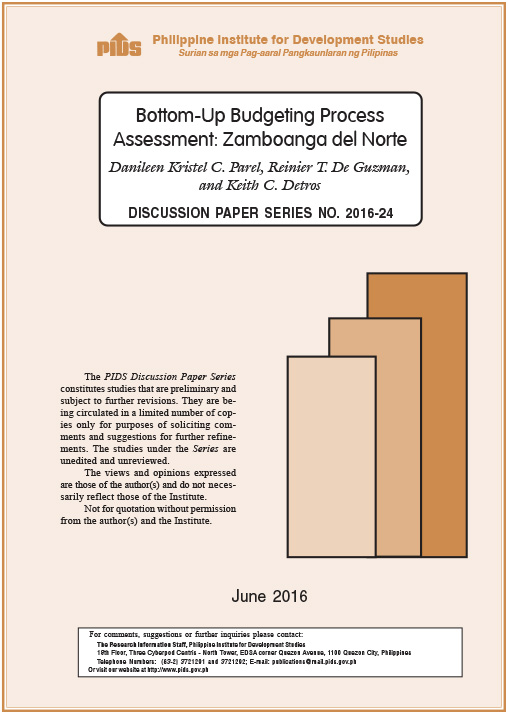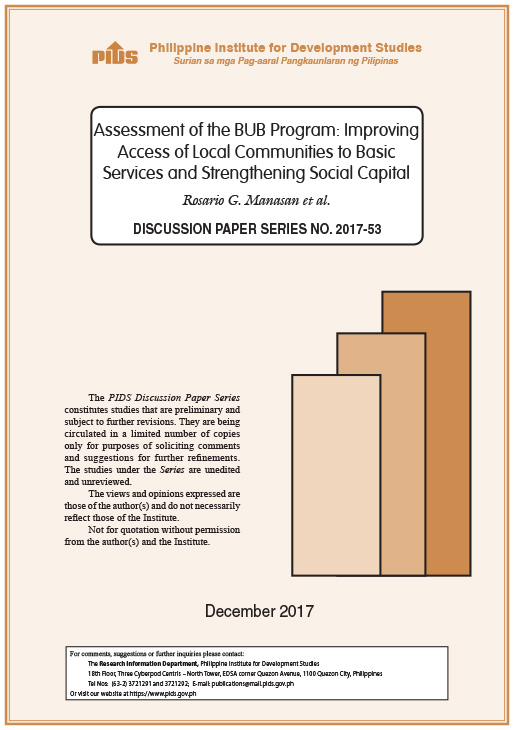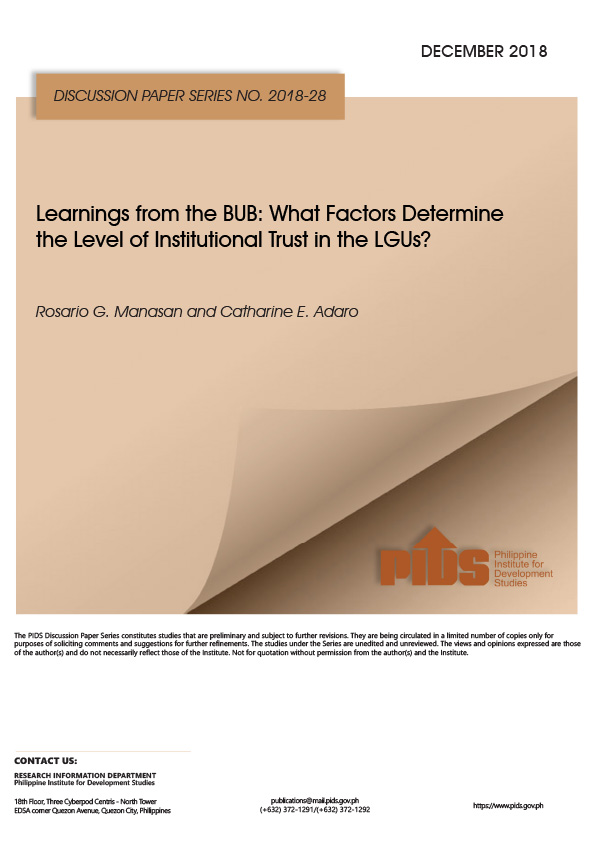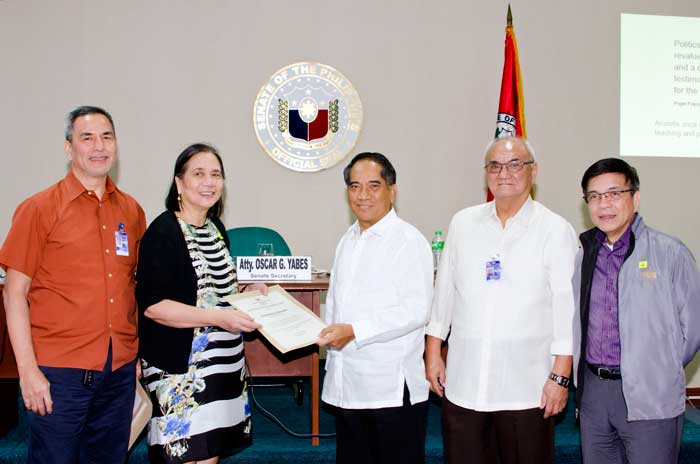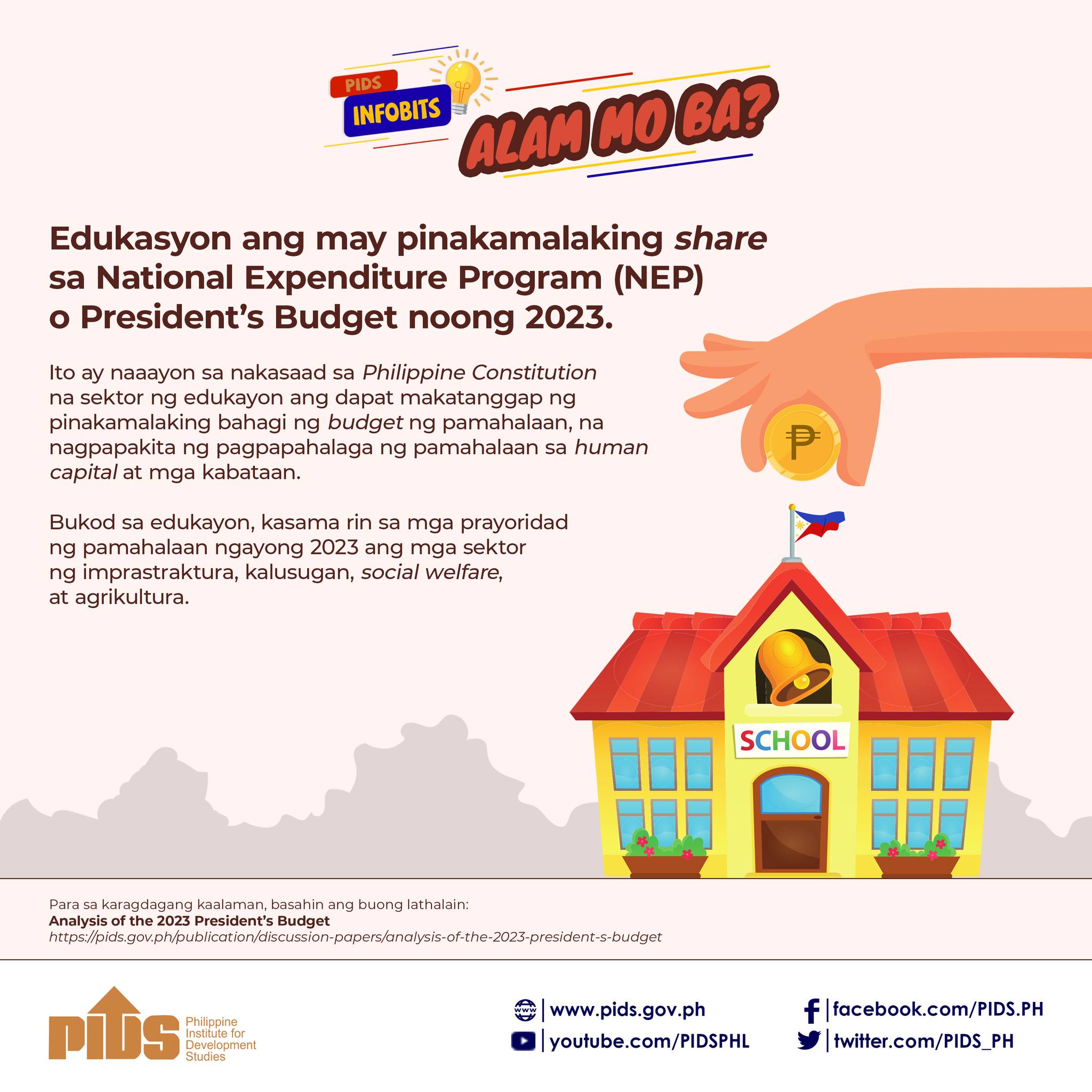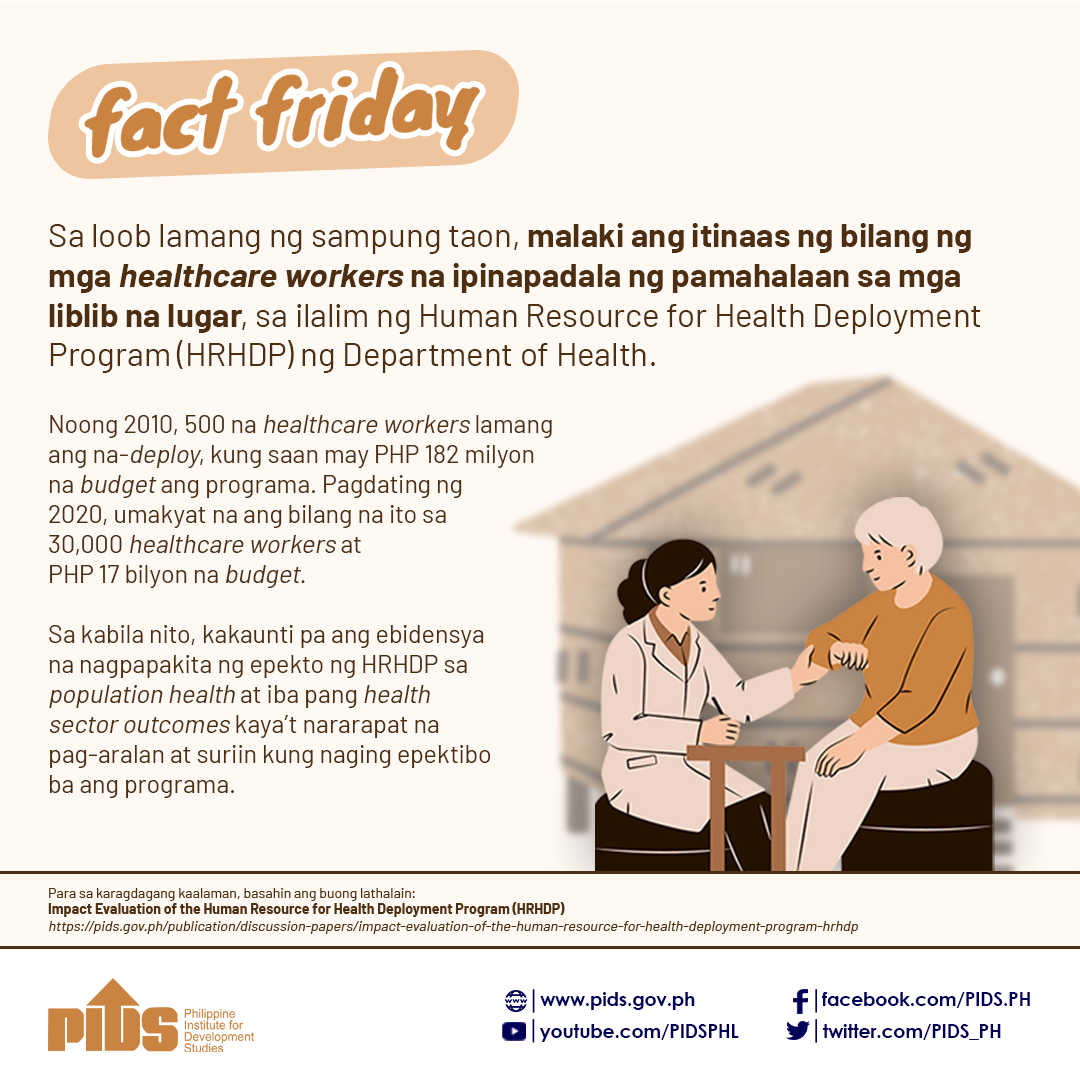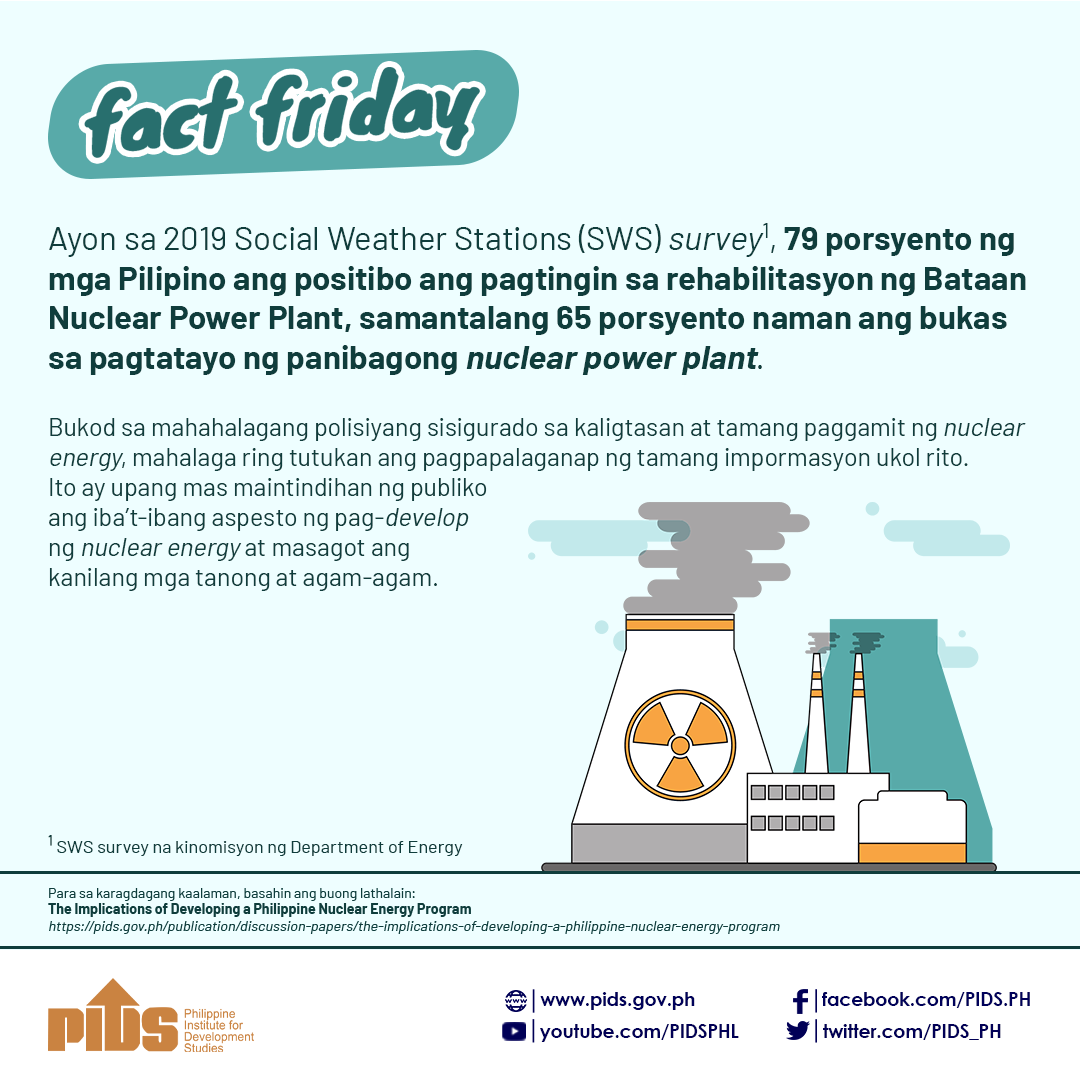
Dr. Rosario Manasan, senior research fellow at state think tank Philippine Institute for Development Studies (PIDS), presents the key findings of an assessment of the government's bottom-up budgeting (BUB) program. The BUB program was launched with a twin objective of promoting participatory budgeting processes at the national and local levels, and of helping the poorest local government units (LGUs) work their way out of poverty by providing additional funding for the most critical poverty-alleviating programs identified by the LGUs and civil society organizations (CSOs).
Now on its fourth year, the program has performed well in accomplishing its first objective. The PIDS research team led by Manasan conducted focused group discussions and key informant interviews with the LGU officials, CSO leaders and members, and other parties involved in the BUB. They learned that the CSO participants were generally pleased with the BUB.
"For the first time, the CSOs felt free to speak and that their inputs were being listened to," Manasan related. The study showed that having enough time for discussions and deliberations enables CSOs to produce better project proposals that are characteristically more sustainable and beneficial to more people.
According to the accounts relayed to and observed by the researchers, without the BUB as a mechanism, the participation of CSOs in the prioritization of projects and programs would be close to nothing. Under the BUB process, CSO participation is at 50 percent, compared to the 25 percent participation of CSOs allowed in the normal local budgeting process under the Local Government Code (LGC).
Despite all of these, however, Dr. Manasan remarked that the CSOs will be more empowered and their decisionmaking more enhanced if the BUB process itself will be refined. Manasan noted that CSOs are generally only able to participate in the BUB process in terms of the planning and project prioritization stages. However, she noted that the mechanisms to monitor the implementation and evaluation of their projects do not exist. This, Manasan emphasized, dampens the inclusiveness of the BUB process.
On the BUB's second objective of alleviating poverty, the project has lagged behind in demonstrating that it has accomplished significant poverty reduction. Part of the reason is the lack of monitoring mechanisms and the slow implementation of the projects.
Dr. Mansan's team concluded that the BUB process works as far as empowering the political voice of CSOs and giving them a platform to exercise their decisionmaking to identify critical issues and ideas for the development of their local communities. She recommended that the LGC incorporate some of the BUB’s lessons, and that the BUB as a program should enhance participation of the CSOs in the monitoring and evaluation phases. ###
If you wish to learn more about the BUB, you may read the PIDS Economic Issue of the Day on the BUB process or Dr. Manasan's study here.
Now on its fourth year, the program has performed well in accomplishing its first objective. The PIDS research team led by Manasan conducted focused group discussions and key informant interviews with the LGU officials, CSO leaders and members, and other parties involved in the BUB. They learned that the CSO participants were generally pleased with the BUB.
"For the first time, the CSOs felt free to speak and that their inputs were being listened to," Manasan related. The study showed that having enough time for discussions and deliberations enables CSOs to produce better project proposals that are characteristically more sustainable and beneficial to more people.
According to the accounts relayed to and observed by the researchers, without the BUB as a mechanism, the participation of CSOs in the prioritization of projects and programs would be close to nothing. Under the BUB process, CSO participation is at 50 percent, compared to the 25 percent participation of CSOs allowed in the normal local budgeting process under the Local Government Code (LGC).
Despite all of these, however, Dr. Manasan remarked that the CSOs will be more empowered and their decisionmaking more enhanced if the BUB process itself will be refined. Manasan noted that CSOs are generally only able to participate in the BUB process in terms of the planning and project prioritization stages. However, she noted that the mechanisms to monitor the implementation and evaluation of their projects do not exist. This, Manasan emphasized, dampens the inclusiveness of the BUB process.
On the BUB's second objective of alleviating poverty, the project has lagged behind in demonstrating that it has accomplished significant poverty reduction. Part of the reason is the lack of monitoring mechanisms and the slow implementation of the projects.
Dr. Mansan's team concluded that the BUB process works as far as empowering the political voice of CSOs and giving them a platform to exercise their decisionmaking to identify critical issues and ideas for the development of their local communities. She recommended that the LGC incorporate some of the BUB’s lessons, and that the BUB as a program should enhance participation of the CSOs in the monitoring and evaluation phases. ###
If you wish to learn more about the BUB, you may read the PIDS Economic Issue of the Day on the BUB process or Dr. Manasan's study here.

